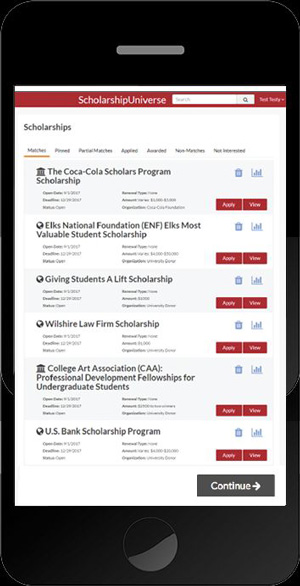
Smartphone shipments fell to 334.3 million in the first quarter of the year, down 2.9 percent compared to the same period last year, according to a new report from International Data Corp. Sales in China, where shipments dipped below 100 million for the first time since 2013, are largely behind the drop.

Tablet sales fell to 31.7 million in the first quarter of 2018, an 11.7 percent drop compared to the same period in 2017, according to a new report from International Data Corp. Detachable tablets were a bright spot in the category, showing a year-over-year improvement of 2.9 percent and a 15.3 percent market share. Sales of traditional tablets, on the other hand, were down more than the market overall, having fallen 13.9 percent below sales for 2017's first quarter.

OOHLALA Mobile and DubLabs, both mobile platforms for student engagement and communication, have merged. The combined company will be able to offer higher education institutions "more system integrations, better student communication tools, and smart data analytics to help improve student engagement, communication and success," according to a news announcement.

The top technology-related priority for community colleges in the coming year is mobile device and app support, according to a survey from the Center for Digital Education. About a third of those institutions have a strategy in place for use of mobile devices, and more than half are piloting the use of devices in the classroom but lack a formal strategy for doing so.

A new mobile browser developed at Carnegie Mellon University offers a better search experience for people doing complex searches across multiple websites. The app offers the promise of replacing the overwhelming tab management required by iPhone's default Safari browser. The Bento browser, as it's called, compartmentalizes search sessions into a project workspace structure.

A small private institution in New York is using mobile to better communicate with students and keep them engaged with campus events. St. Francis College partnered with Modo Labs to create a mobile app that personalizes the user experience for different student populations. For instance, the college is catering to prospective students with modules for Open House and Accepted Students Day, and already seeing an increase in online applications, according to a news release.

A professor of electrical engineering at Embry-Riddle Aeronautical University uses Sony's Digital Paper device for e-textbooks, lecture notes, grading and more.

A new mobile app at Arkansas State University will help the institution communicate with students on their on terms — via mobile device. The university partnered with OOHLALA Mobile to build the app, which will include message boards, event tracking tools, calendars and other resources, according to a news announcement.

A joint research project at several universities found that the "persistent presence" of smartphones comes at a "cognitive cost." Researchers in the schools of management at the University of Texas at Austin and the University of California, San Diego as well as the Department of Social and Decision Sciences at Carnegie Mellon ran two experiments to attempt to measure how well people finish tasks when their smartphones are nearby — even if the phones aren't in use.

A homegrown student scholarship management application has spread its wings beyond the institution that originally developed it. Scholarship Universe, launched at the University of Arizona, has been rewritten from scratch and updated by Campus Logic for use in other schools. The product helps match students with potential scholarship opportunities and manage their applications; the new version is mobile-friendly and offers text notifications.